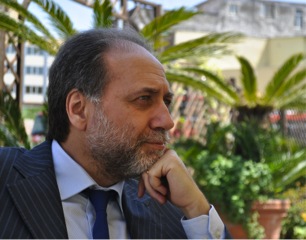
Francesco Amoretti
Full Professor
About
Francesco Amoretti graduated in Sociology from Federico II University of Naples and earned a PhD in Political Science from the University of Florence. Since 2001, he has been an Associate Professor, and since 2019, he has served as a Full Professor of Political Science at the University of Salerno, where he is part of the Bachelor's degree program in Diplomatic, International, and Global Security Studies (L36). He teaches Digital Policies within the Cybersecurity curriculum alongside Dr. Mauro Santaniello. This program is notably the first to be accredited by the European Union Agency for Cybersecurity (ENISA). Additionally, he is a Lecturer in Public Administration Science at the University of Salerno within the Bachelor's degree program in Administration and Organization Sciences. His course focuses on the transformations in Public Administration driven by technological innovations, particularly the proliferation of digital technologies.
His research interests include Comparative Politics, Transformations in Public Administration, Social Policies, Political Communication, Internet Governance, and Geopolitics. His research activities primarily explore the relationships between media/technological innovations and political systems. The main areas of focus include the Geopolitics of Internet Governance, Public Administration Reforms (E-government), E-democracy, the Digital Revolution and Constitutionalization Processes, European Digital Policies in a Comparative Perspective, and the Mediatization of Politics in Italy.
Contact Information
Email: Amoretti@unisa.it


